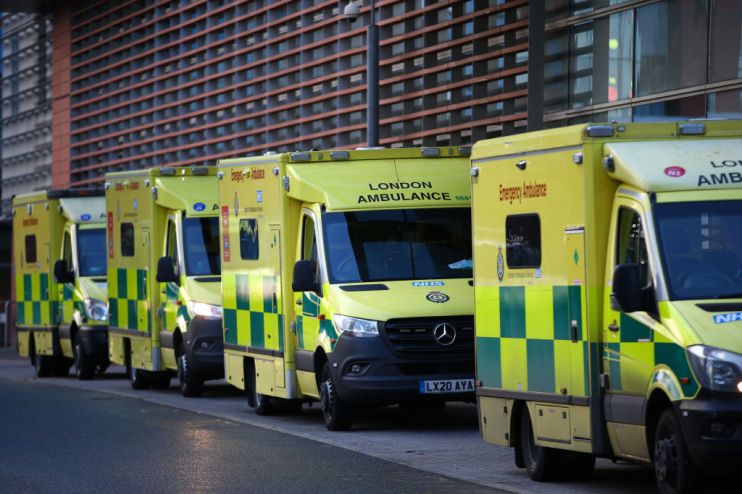Men in low-skilled jobs had highest Covid death rate last year

Men in low-skilled jobs had the highest rate of death from Covid among workers in England and Wales last year, according to the latest official figures.
There were 7,961 coronavirus-related deaths registered among the working age population — aged 20 to 64 years — between 9 March and 28 December last year, according to data released today by the Office for National Statistics (ONS).
The figure makes up just over one tenth of the total Covid death toll at that point, as most coronavirus-related fatalities were recorded among the older populations.
Nearly two-thirds of deaths among the working population were men, with 5,128 deaths compared with 2,833 deaths among women, according to ONS data.
The figure means men had a statistically higher rate of death involving Covid-19, with 31.4 deaths per 100,000 men of the working population, compared with 16.8 deaths per 100,000 women.
Men who worked in low-skilled manual jobs ran the highest risk of dying from Covid, with 699 deaths recorded last year — equivalent to around 66.3 deaths per 100,000.
Those in caring, leisure and other service occupations followed close behind, recording an average 64.1 deaths per 100,000 males last year.
Looking at specific occupations, the data showed that nurses had statistically significantly higher rates of death involving Covid when compared with the rate of coronavirus among those of the same age and sex in the population. There were 79.1 deaths per 100,000 male nurses last year, and 24.5 deaths per 100,000 female nurses.
In comparison, men in professional occupations were least likely to die with Covid, followed by those in associate and technical jobs, and managers and directors.
“Today’s analysis shows that jobs with regular exposure to Covid-19 and those working in close proximity to others continue to have higher Covid-19 death rates when compared with the rest of the working age population,” said Ben Humberstone, head of health analysis and life events at the ONS.
GMB Union, which represents more than 631,000 British workers, slammed the findings as “devastating” and “avoidable”.
“‘The truth is that the UK was too slow to respond to the outbreak in workplaces. The messages from ministers have been inconsistent, and to date there have been no prosecutions of employers for breaches of regulations relating to coronavirus,” said Dan Shears, GMB’s national health, safety and environment director.
“‘Workers are still being forced to use inadequate PPE, and some people are attending work despite being infectious because they cannot afford to self-isolate. These are structural problems that could have been fixed months ago.”
It comes as the UK yesterday recorded a further 610 fatalities within 28 days of testing positive for Covid, taking the total coronavirus-related death toll to 97,939.
Ministers are understood to be mulling plans for all arrivals to the UK to quarantine at hotels, in a bid to prevent coronavirus mutations reaching Britain’s shores.
Chancellor Rishi Sunak has said the plans are necessary to prevent new Covid strains interfering with the UK’s vaccine rollout, the Times reported.
A decision on tightening border rules is due to be made by Boris Johnson tomorrow at a Covid operations committee meeting of ministers.